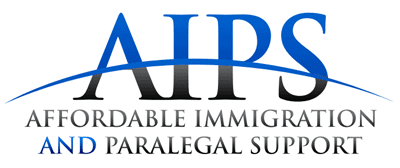Temporary Residence
Visitor Visa
A visitor visa is required for certain foreign nationals who wish to travel to Canada. Depending on your citizenship, you may or may not require a temporary resident visa.
Foreign nationals who require a visa and wish to visit Canada must first meeting the following eligibility requirements.
- Have a valid travel document
- Be in good health
- Have no criminal or immigration- related
- Have sufficient funds for your stay
- Must be able to convince an immigration officer that you have ties back in your home country (ie. Job, home, financial assets, and family)
- Must be able to convince an immigration officer that you will leave at the end of your stay
- You may also need a medical exam and letter of invitation from someone who lives in Canada
Most visitors may stay in Canada for up to 6 months.
Book your consultation with one of our professionals today.
Using this contact form is intended solely for introduction of the addressee and Affordable Immigration and Paralegal Support. The submission of this contact form does not constitute a client-representative agreement. Please do not share attachments or confidential information.
Super Visa
A visitor visa is required for certain foreign nationals who wish to travel to Canada. Depending on your citizenship, you may or may not require a tA super visa allows you to visit your children or grandchildren for up to 2 years a time. It is a multi-entry visa that provides multiple entries for a period of up to 10 years. You can only apply for a super visa from outside Canada.
To be eligible the applicant must:
- Be the parent or grandparent of a Canadian citizen or a permanent resident of Canada.
- Have a signed letter from your child or grandchild inviting you to Canada which promises the applicant to be financially supported by the child/grandchild
- Have medical insurance from a Canadian insurance company
Study Permit
Study permits are necessary for any foreign national that wishes to study in Canada.
You can study in Canada if you:
- Are enrolled at a Designated Learning Institution
- Prove you have the funds to be able to live and study in Canada
- Have a clear criminal record
- Are in good health and get a medical exam
- Prove to an officer that you will leave Canada when your study permit expires
Post Graduate Work Permit
Allows students who have graduated from eligible Canadian Designated Learning Institutions to attain an open work permit. A PGWP may be issued based on the length of the study program for a minimum of 8 months and up to a maximum of 3 years.
Work Permit
Post Graduate Work Permit
Allows students who have graduated from eligible Canadian Designated Learning Institutions to attain an open work permit. A PGWP may be issued An open work permit allows you to work for any employer in Canada except for:
- An employer who is listed as ineligible on the list of employers who have failed to comply with the conditions
Employer Specific Work Permit
An employer-specific work permit allows you to work according to the conditions on your work permit which include:
- The name of the employer you can work for
- How long you can work
- The location where you can work
Labour Market Impact Assessment (LMIA)
AA Labour Market Impact Assessment (LMIA) is a document that an employer in Canada may need before hiring a foreign worker. To apply for an LMIA, an employer must first try and hire a Canadian or Permanent Resident. If after 30 days of recruitment efforts, the employer was not able to find a Canadian or Permanent Resident, they can apply for an LMIA. A positive LMIA proves that there is no Canadian available to fill the job therefore the employer will need to look outside of Canada to fill the position.
There are different LMIA streams, depending on the wage being offered to the Temporary Foreign Worker. If the wage is above the provincial median it would be considered a High-Wage LMIA stream. If the wage is below the provincial median wage, then it would be considered a Low-Wage application. While both streams require the 30-day advertisement period, a Low-Wage LMIA requires the employer to pay for the round-trip transportation costs for the Temporary Foreign Worker. Additionally, the employer must provide or ensure that affordable housing is available and provide the TFW with benefits from the first day of arrival.









